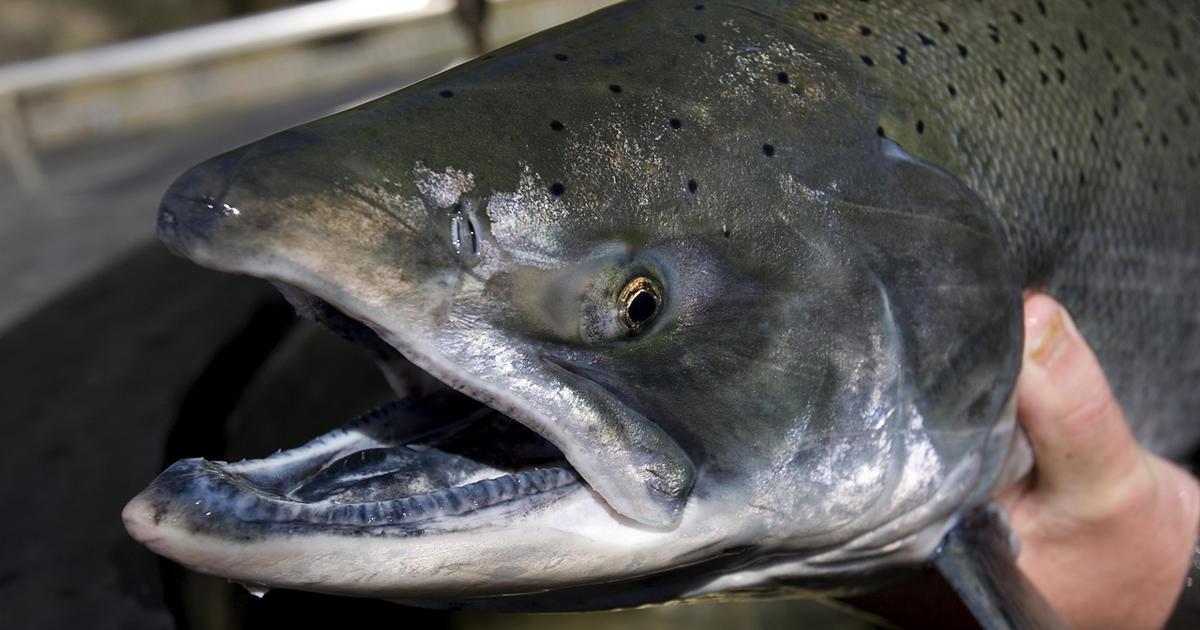Global biodiversity report shows “catastrophic decline” in wildlife populations

A shocking new report on global biodiversity is detailing what it calls “a catastrophic decline” in wildlife populations ahead of a major international conference on biodiversity.
On Monday, Oct. 21, the United Nations will convene a two-week conference in Cali, Colombia called COP16. On the agenda are climate change and the protection of life. But hanging over this meeting is a new report by the World Wide Fund for Nature (formerly the World Wildlife Fund). The 2024 Living Planet Report details “a catastrophic 73% decline in the average wildlife populations over just 50 years.”
The concern is centered at points around the world – from the grassy fields in the Serengeti to the urban jungles of the San Francisco Bay Area. Creatures big and small are under threat.
“That means in just my lifetime, 50 years, we’ve seen a decline of 73% in the average size of these wildlife populations,” noted Dr. Robin Freeman, global biodiversity expert with the Zoological Society of London.
Among the biggest threats are humans and a warming planet. Both are leading to an accelerating change that will make it impossible for species to successfully adapt.
“Species are very often exquisitely tuned to local environments that have taken thousands to millions of years through co-evolution to kind of establish and create the selection across their genome as to what features are going to survive,” noted Stanford biology professor Dr. Elizabeth Hadly. “When we are changing things so rapidly, we unravel those connections, extinction happens in a heartbeat.”
Humans are encroaching into the critical habitats of multiple species and putting many ecosystems at risk, thereby threatening the planet’s biodiversity. The impacts are affecting the elephants in tropical forests, the hawksbill sea turtles off the Great Barrier Reef, and even the migrating birds that pass through the Bay Area.
“Most of our native birds need a lot of biodiversity in the plants and the insects in order to survive,” explained Dr. Katie LaBarbera, senior biologist and science director for the Land Bird Program at the San Francisco Bay Bird Observatory, who noted how around the world, some bird populations are in decline.
In addition to birds, some fish are in trouble. According to the WWF report, in California, the number of winter-run Chinook salmon dropped 88% since 1970. The Shasta Dam blocked off access to their historical spawning ground, while climate change threatens the Sacramento River – an important migration route.
Chief Caleen Sisk, spiritual leader of the Winnemem Wintu Tribe, and tribal members are working with Maori people of New Zealand and federal fish biologists to return Chinook salmon to the McCloud River and to find passage for them.
In the 19th century, millions of salmon eggs from the McCloud River were exported to 30 states and 14 different countries to create new salmon runs. New Zealand was the only location where the new run thrived, and in 2005, the Māori invited the Winnemem Wintu to bring wild salmon eggs back home to the McCloud.
“The water system here in California really are dependent on how we take care of the salmon,” said Sisk. “If the salmon survive, people will survive. If we want to drain the rivers and rename them as warm water rivers people will also suffer.”
These Bay Area experts say protecting the planet’s wildlife is an urgent wake-up call that no one should ignore.
“Biodiversity can never be recreated,” said Hadly. “It is what we rely on for our food, for our medicine, for our housing. It is so critically important for our humanity.”
“The bits of nature that we have around us are really precious and we’re not going to save them if we don’t first really appreciate them,” added LaBarbera.
“I wish that we could educate everyone about our salmon,” said Sisk. “They’re not just a food to eat. They dig down into the gravel and they let all the silt go out to the sea and they let that river breathe into the groundwater systems.”
The hope with this upcoming conference is that nations will agree to new standards on how to restore nature and halt the decline.







